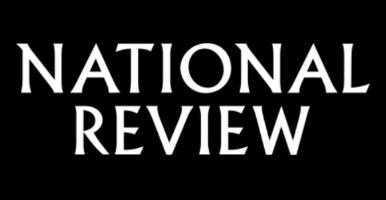This piece originally appeared in National Review on March 5, 2020.
The dragons of myth were not slain by fearless knights, but by reality. In the real world, there are no dragons, and so there’s no need to send St. George to dispatch them.
Another myth died from reality last night: the myth that big spending buys elections.
Former New York City Mayor Mike Bloomberg spent $500 million on his failed presidential campaign. That’s $500,000,000, by the way, with eight zeros.
His ads ran everywhere: No Virginian could load a YouTube video without seeing Hizzoner’s face. He bought time to playact as the president and update the country on the COVID-19 epidemic. He even bought ad time during Democratic presidential debates — padding out his arguments with unchallenged praise for the Bloomberg agenda. He hired a veritable army of staff (at good wages) and sent them out to knock on doors, flood phone lines, and ensure that voters got wall-to-wall coverage: all-Bloomberg, all-the-time.
But as Super Tuesday ended, it became Hangover Wednesday for the Bloomberg brigades. Spending $500 million, or nearly as much as Hillary Clinton’s campaign spent in 2015 and 2016 combined, managed to buy Bloomberg a solitary win — in the territory of American Samoa. There, Bloomberg won 175 votes (that’s not a typo), edging out Rep. Tulsi Gabbard (D., Hawaii), a native of the territory, who picked up a whopping 103 votes.
Former vice president Joe Biden had almost no money to spend, but it didn’t matter. Biden does not appear to have set foot in Minnesota during the campaign, yet he prevailed there in part on the basis of home-state senator Amy Klobuchar’s endorsement. He didn’t run television ads in Massachusetts, yet he prevailed there and consigned the Commonwealth’s senior senator, Elizabeth Warren, to third place — in spite of Warren’s recently blessing a big-money super PAC. The Biden campaign had one field office in all of Virginia, in a share office building just outside of Washington, D.C. Nevertheless, the former vice president swept through the state, carrying nearly every county from Tidewater to the Appalachian Plateau.
Even senator Bernie Sanders, while not as deep-pocketed as Bloomberg, still spent approximately $18 million in the Super Tuesday states. Joe Biden managed to pony up about a ninth of that — $2.2 million. Yet Biden carried Texas, winning over 700,000 votes in that state alone.
Money helps you talk, but it does not guarantee that people will listen. Voters decide elections, not dollar signs or yard signs — or $10 million Super Bowl ads. And voters absorb information from all kinds of sources, not just paid-for campaign rhetoric. It’s true that YouTube ads or whoever the Honorable Judith Sheindlin (that’s Judge Judy to you) campaigns for probably are some small factor. The inescapable media coverage and live debates that come with a presidential campaign, however, make it very difficult to control public perception through advertising and retail politics alone. Voters consider press coverage and signals from the institutional party structure. Perhaps it’s not surprising that Democratic voters turned out and voted for the lifelong Democrat on the ballot, the one the media said could win, and the one that trustworthy party leaders and former presidential opponents all agreed was the right choice. Biden’s advantages can’t be bought.
Regulating any singular channel of electoral information will put a thumb on the scale. Indeed, one cannot help but note that campaign-finance laws are, by definition, almost always written by self-interested incumbent politicians and typically disadvantage their challengers. Voters should have the opportunity to absorb, engage with, and reflect on many sources of information before deciding to cast a vote.
The press should go unregulated. The party should be able to signal its support to its partisans. And super PACs for Elizabeth Warren and the personal bank accounts of Michael Bloomberg ought to be able to disburse whatever amount of money they wish — even if it’s the functional equivalent of yelling at voters like peripatetic street preachers (another group protected by the First Amendment). Instead of trying to tie down paid spending with red tape and regulations, as the campaign-finance-reform groups would have us do, we should let a hundred flowers bloom. Americans can receive, review, and decide what information is relevant to their voting decisions — and then to act on it.
The dragon has been slain. The village is safe.














